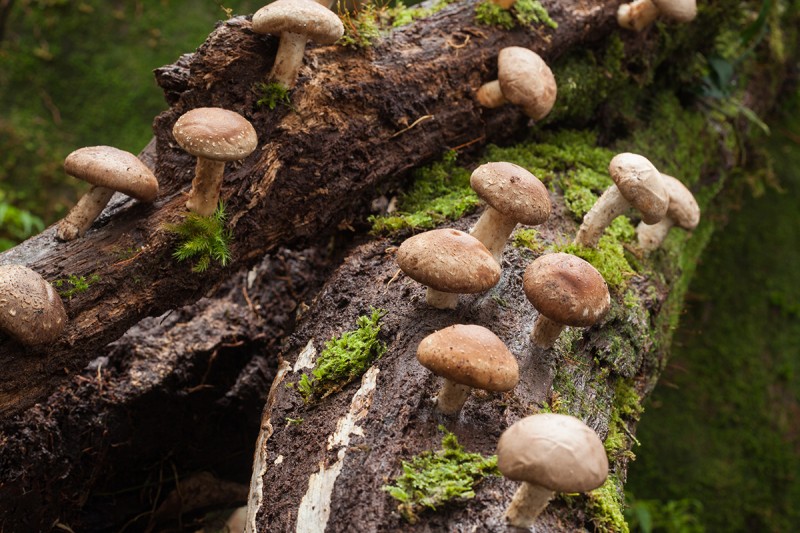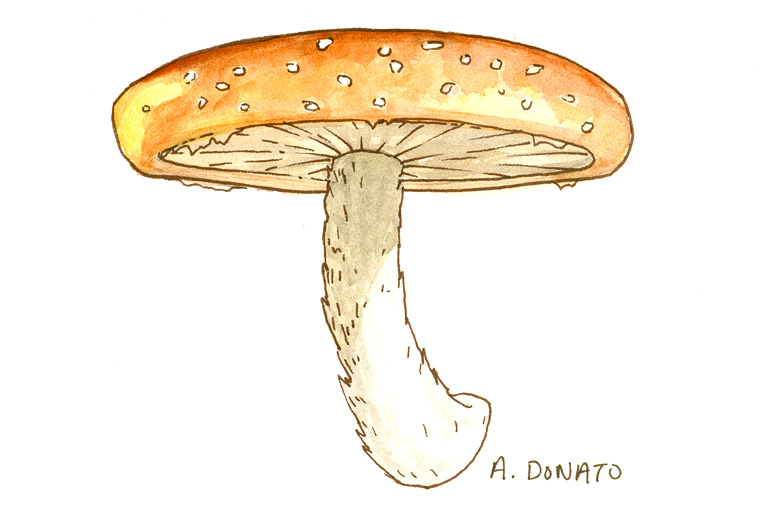
Mushrooms have always had an aura of special power about them. People all over the world have used them as medicine in the treatment of infection, lung disease, cancer, and other conditions for thousands of years. They have long been central to traditional medicine throughout Asia. But as social media has taken off, so have claims about the health benefits of mushrooms — that they can boost energy and immunity, improve digestion and mood, and potentially treat cancer.
Because fungi are full of bioactive compounds, they’ve also captured the attention of pharmaceutical companies searching for novel compounds to treat everything from cancer and infectious disease to Alzheimer’s.
“It’s a good area for biological research,” says Gary E. Deng, MD, PhD, Integrative Medicine Specialist at Memorial Sloan Kettering Cancer Center (MSK). He credits mushrooms for many of the life-saving drugs we rely on: “We have a fungus to thank for the discovery of penicillin and other antibiotics, as well as certain chemotherapy agents.”
But he points out that although studies are underway, no substances from mushroom products sold as dietary supplements have been approved by the U.S. Food and Drug Administration as a treatment for cancer or any other medical condition. The research is ongoing and does not support all of the health claims.
To help separate the hype from the proven health benefits, Dr. Deng answers some of the most common questions about mushrooms.
What are medicinal mushrooms?
Medicinal mushrooms are part of a booming multibillion-dollar industry built on the potential of certain mushrooms — called “functional mushrooms” — to offer health benefits beyond basic nutrition. While some of these mushrooms, such as lion’s mane and shiitake, are also culinary mainstays, researchers are focused on the bioactive compounds found in mushrooms such as:
- lion’s mane
- turkey tail
- chaga
- shiitake
- reishi
- cordyceps
Do medicinal mushrooms help the immune system fight cancer?
Medicinal mushrooms are being investigated to see how they affect the immune system and if they can stop or slow the growth of tumors or kill tumor cells. It’s thought that certain compounds in the mushrooms, particularly the polysaccharides, which are bioactive ingredients found in turkey tail, maitake, and reishi mushrooms, may strengthen the immune system and potentially improve immune response in patients undergoing chemotherapy. Most of the data, however, comes from laboratory and animal studies and has not been tested in humans.
Dr. Deng’s team in the Integrated Medicine Service led one of the first clinical trials to examine the impact of maitake mushroom extract on the immune systems of breast cancer patients. The results, he says, proved to be eye-opening.
The maitake mushroom extract had a ‘dual effect’ — meaning it was both an immune stimulator and an immune suppressor.
“We published our findings on maitake mushrooms so the nation’s cancer doctors are aware of the evidence,” says Dr. Deng. “It’s a powerful reminder for cancer patients to talk to their providers before using medicinal mushrooms.”
Can medicinal mushrooms prevent cancer?
There is no evidence showing that any mushroom products can prevent cancer.
What about decades of research from Asia showing health benefits from mushrooms?
The quality of the studies varies, and the results are mixed.
There are studies in Japan of turkey tail extract used during chemotherapy with digestive cancer patients, and those patients appeared to do better. Studies show using them may help immune cell damage caused by chemotherapy and improve survival.
But you have to weigh the benefits for each patient. With patients who have an autoimmune disease, like Crohn’s, ulcerative colitis, or lupus, an extract that stimulates the immune system is probably not advised.
Does MSK ever treat cancer patients with medicinal mushrooms?
“I sometimes recommend polysaccharide extract from turkey tail mushroom extract as a supplement for selected patients,” says Dr. Deng. “But when a patient comes to the Integrative Medicine Program, we focus on all their needs — physical, mental, social. The immune system is very complex, there’s not one master switch. It depends on good nutrients, exercise, sleep. We look at all the little things you can tweak every day that will help you have a robust immune system. Don’t just rely on taking a mushroom pill.”
Is there any harm in cancer patients taking mushroom supplements?
There are several concerns:
- Not every cancer or cancer treatment suppresses immune function.
- Many patients have co-existing autoimmune conditions (such as lupus or thyroid problems), and we don’t want to make your immune cells more active.
- For patients on immunotherapy, mushrooms can overstimulate the immune system and make side effects worse.
- For patients on immune suppressants or who have had a bone marrow transplant, making the immune system too strong is not the goal.
- For breast cancer patients taking lion’s mane thinking it might help cognitive function and treat chemo brain, recent reports are showing it may contain phytoestrogen, estrogen-like substances from plant sources, which may stimulate growth of certain breast cancer cells.
Is it safe for healthy people to take mushroom supplements?
“My advice,” says Dr. Deng, “is buyer beware.”
- Many products base their health claims on laboratory studies where the amount of active ingredient is so high you can’t get that by ingesting a few capsules.
- Unbeknown to most consumers, the product may not necessarily have the active ingredient that was used in the clinical trial that led to its approval. For example, many consumer products contain only crude mushroom powder or mycelium (the invisible roots of the mushroom), which were not used in the clinical trials showing positive results. The trials used polysaccharide extracts.
- Mushroom coffee is popular but the extraction and brewing process seems like an inefficient method to get the polysaccharide, the bioactive ingredient. I don’t think there’s enough active ingredient to affect your immune system in any significant way. Maybe you feel better because you’re getting less caffeine.
What about eating whole mushrooms?

Mushrooms have two values: the medicinal and the culinary value. The medicine comes from extracting the bioactive compound, the active ingredient of the mushroom, and making medicinal products, such as tinctures, teas, and capsules. It’s not the mushroom itself that’s therapeutic, it’s the extract made from mushrooms.
Culinary mushrooms are great in the diet. They’re rich in fiber, and fiber supports a healthy microbiome. And when you have a healthy microbiome, everything works better. They are also good in providing “umami” — the savory taste. Next time you cook, try adding some mushrooms to enhance the flavor of your signature dish!